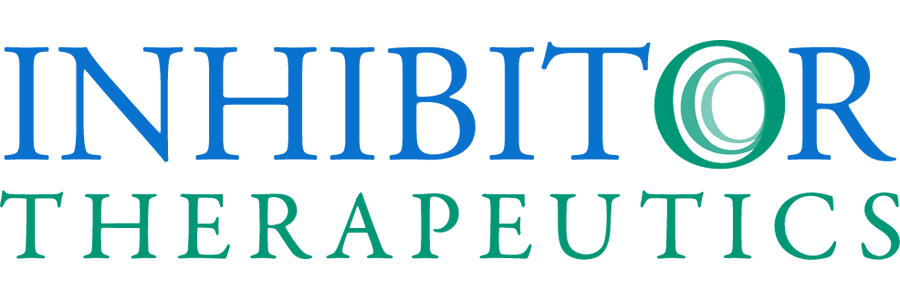INHIBITOR Therapeutics Submits Investigational New Drug Application for Treatment of Patients with Late-Stage Prostate Cancer
SUBA™-Itraconazole to be Tested in Combination with Standard of Care Chemotherapy for Metastatic Castrate Resistant Prostate Cancer
FDA Confirms the Proposed Study Adequately Addresses the Objectives Necessary to Support a Regulatory Submission
TAMPA, Fla., Nov. 25, 2019 /PRNewswire/ -- INHIBITOR Therapeutics, Inc. (OTCQB: INTI), a biopharmaceutical company focused on the discovery, development and commercialization of innovative therapeutics to inhibit progression of cancerous and non-cancerous proliferation disorders, today announced that the company has submitted an Investigational New Drug (IND) Application to the U.S. Food and Drug Administration (FDA) to seek clearance to initiate an IND-opening clinical study as a two-part, multi-center, randomized, double-blind, placebo-controlled, Phase 2b clinical trial that will evaluate the efficacy and safety of SUBA-Itraconazole capsules dosed in combination with docetaxel and prednisone in patients with metastatic castrate resistant prostate cancer (mCRPC). The proposed trial will be named PREDICT (Prostate Response Evaluating Docetaxel Itraconazole Combination Therapy).

Nicholas Virca, INHIBITOR's President and CEO, said: "Following a pre-IND meeting with FDA in the first half of this year, FDA granted us a face-to-face End-of-Phase-2 (EoP2) meeting, which I am pleased to announce occurred last month. During that meeting, we gained FDA guidance and agreement on our protocol and statistical analysis plan for our proposed PREDICT trial. FDA indicated that we can follow the 505(b)(2) regulatory pathway given previous FDA approval of itraconazole. Assuming positive results demonstrating an improvement in radiographic progression-free survival (rPFS) as our primary endpoint, FDA indicated that the general design and planned analysis of our study would adequately address the objectives necessary to support a New Drug Application (NDA) submission. Further, FDA indicated that the final analysis of the key secondary endpoint of overall survival (OS) can occur following submission of the NDA for approval in the United States."
Mr. Virca continued: "I would like to acknowledge the stellar efforts of our regulatory and clinical team members over the last nine months to achieve this level of progress for our SUBA-Itraconazole Prostate program. Approximately 23,000 men in the U.S. are diagnosed each year with late-stage mCRPC that no longer responds well to androgen deprivation therapy (ADT) or previous treatment with chemotherapy or newer stand-alone anti-androgen therapies such as abiraterone, enzalutamide or apalutamide. We believe that SUBA-Itraconazole Prostate has the potential to address an unmet need in these patients, who exhibit disease progression or who have discontinued the other therapies due to toxicity or other reasons."
About Itraconazole in Prostate Cancer
In late-stage prostate cancer, up-regulation of the Hedgehog pathway in cells results in oncogene expression, which can interfere with the binding of ADT drugs to the androgen receptor (AR), causing biochemical resistance leading to mCRPC. Itraconazole acts on the essential Hedgehog signaling pathway component called smoothened (SMO) in human cells in a different manner than the FDA-approved drug vismodegib by preventing the ciliary accumulation of SMO normally caused by the Hedgehog pathway. Itraconazole also has a much shorter half-life than vismodegib, which may be the reason it appears to have fewer side effects than what has been reported for vismodegib in recent publications regarding its use in treating basal cell carcinoma. Thus, itraconazole may be more suitable than vismodegib for use in combination with chemotherapy due to its lower toxicity profile. Itraconazole has been tested as a treatment for mCRPC in a multi-institutional Phase 2 trial led by a prominent U.S. university and published in 2013.This trial showed that 90% of men with prostate specific antigen (PSA)-doubling times of less than 6 months, who achieved therapeutic levels of itraconazole, showed promising PSA reductions that correlated significantly with rPFS. The improved bioavailability of SUBA-Itraconazole may provide additional benefits to prostate cancer patients in two ways: 1) by achieving higher therapeutic levels of itraconazole at lower doses than those reported in the Phase 2 study, which used the generic formulation of the drug, and 2) by reducing the dose of chemotherapy based on enhanced uptake of docetaxel in the presence of itraconazole.
About INHIBITOR Therapeutics
INHIBITOR Therapeutics, Inc. (OTCQB: INTI) is a pharmaceutical development company that discovers, develops and plans to commercialize innovative therapeutics to inhibit the progression of cancerous and non-cancerous proliferation disorders. INHIBITOR is the exclusive U.S. licensee of SUBA-Itraconazole in certain fields. Clinical studies have shown SUBA-Itraconazole to have greater bioavailability than generic itraconazole, a drug approved by FDA for the treatment of certain fungal infections. The Hedgehog signaling pathway is a major regulator of cellular processes in vertebrates, including cell differentiation, tissue polarity and cell proliferation. Based on published research, INHIBITOR believes that inhibiting the Hedgehog pathway could delay or possibly prevent development and progression of certain cancers, such as prostate cancer, in humans. Leveraging research undertaken by key investigators in the field, INHIBITOR is exploring the effectiveness of SUBA-Itraconazole as an anti-cancer agent to pursue its potential commercialization. INHIBITOR is headquartered in Tampa, Florida. For more information, please visit www.inhibitortx.com.
Cautionary Note Regarding Forward Looking Statements
This press release and any statements of representatives and partners of INHIBITOR Therapeutics, Inc. (the "Company") related thereto may contain, among other things, certain "forward-looking statements" within the meaning of the Private Securities Litigation Reform Act of 1995. Such forward-looking statements involve significant risks and uncertainties. Such statements may include, without limitation, statements with respect to the Company's plans, objectives, projections, expectations and intentions and other statements identified by words such as "projects," "may," "will," "could," "would," "should," "believes," "expects," "anticipates," "estimates," "intends," "plans," "potential" or similar expressions. These statements are based upon the current beliefs and expectations of the Company's management and are subject to significant risks and uncertainties, including those detailed in the Company's filings with the Securities and Exchange Commission. Actual results (including, without limitation, the timing for and results of FDA's review of the Company's IND application and any subsequent clinical trials (should they occur) as described herein) may differ significantly from those set forth or implied in the forward-looking statements. These forward-looking statements involve numerous risks and uncertainties that are subject to change based on various factors (many of which are beyond the Company's control). The Company undertakes no obligation to publicly update any forward-looking statements, whether as a result of new information, future events or otherwise, except as required by applicable law.
Contacts:
Tiberend Strategic Advisors, Inc.
Miriam Miller (Investors)
212-375-2694
mmiller@tiberend.com
Ingrid Mezo (Media)
646-604-5150
imezo@tiberend.com
![]() View original content to download multimedia:http://www.prnewswire.com/news-releases/inhibitor-therapeutics-submits-investigational-new-drug-application-for-treatment-of-patients-with-late-stage-prostate-cancer-300963978.html
View original content to download multimedia:http://www.prnewswire.com/news-releases/inhibitor-therapeutics-submits-investigational-new-drug-application-for-treatment-of-patients-with-late-stage-prostate-cancer-300963978.html
SOURCE INHIBITOR Therapeutics, Inc.
Released November 25, 2019



